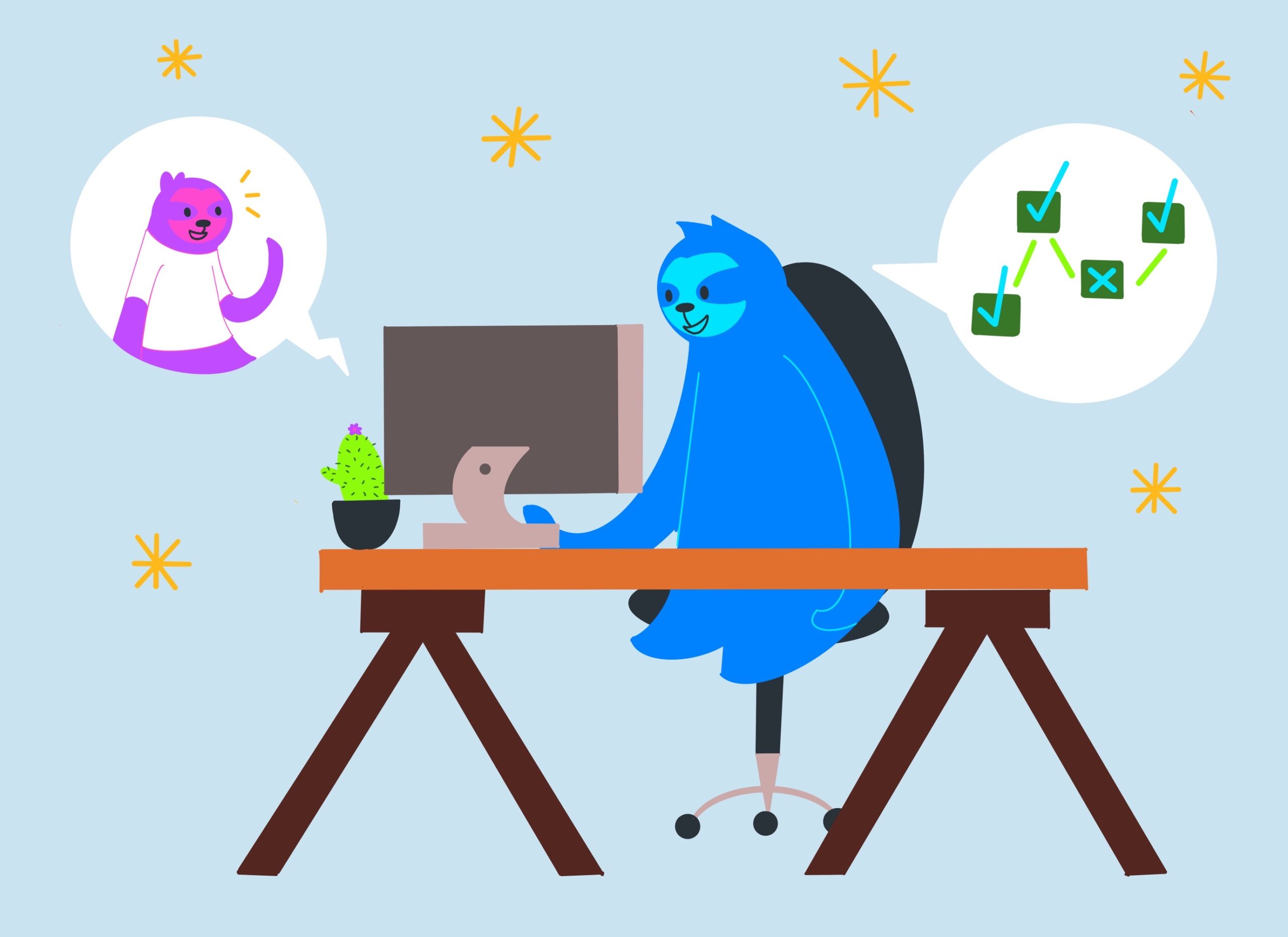Procrastination is a struggle for almost everyone. But if you or your child have Attention Deficit Hyperactivity Disorder (ADHD) or a similar diagnosis, it can be even harder to resist procrastinating in your daily life.
The constant battle to stay focused and complete your to-do list can be exhausting, and it’s common to feel frustrated and ashamed. But remember: just because you procrastinate, it doesn’t mean there’s anything wrong with you. You’re not lazy, and you’re not broken.
It’s possible to beat procrastination—even when you have ADHD.
Please remember that this article is not medical advice, so if you’re curious about being diagnosed with ADHD or getting psychological treatment, please consult your physician. But there are non-medical tips and strategies you can use to beat procrastination and lead a more fulfilling life. We’ll explore a few below.
What is the connection between ADHD and procrastination?
Before diving into strategies to beat procrastination, it’s important to understand the relationship between ADHD and chronic procrastination.
ADHD is a common neurodevelopmental disorder that affects about 8% of children and 2.5% of adults. It can cause symptoms like:
- Lack of focus
- Hyperactivity
- Impulsivity
These symptoms aren’t exactly conducive to long work days or productive focus sessions. If you have ADHD, you’re probably easily distracted. You may have a habit of taking on a big project—and then leaving it unfinished to move on to the next exciting thing. You probably struggle to sit still for long, and you have trouble keeping yourself organized and managing your time well.
But just because your ADHD diagnosis sets more obstacles in your way, it doesn’t mean you’re cursed to be unproductive and disorganized forever.
What do emotions have to do with putting off tasks and spending time on something less important?
In individuals with ADHD, procrastination is a way to avoid your feelings of shame and inadequacy. Maybe in the past, you’ve internalized negative feedback from your parents and teachers about your failures to meet expectations. Now—whether consciously or unconsciously—you avoid doing your work because you’re afraid of failing again.
And with every deadline you miss, your fear of failure becomes a self-fulfilling prophecy, compounding your feelings of inadequacy and shame.
What are some ways to deal with ADHD and chronic procrastination?
1. Practice positive self-talk
The first step in overcoming procrastination with ADHD is accepting yourself. Acknowledge that your brain works differently—but it’s not any better or worse than anyone else’s. It’s okay to be different; in fact, people with ADHD often have enhanced skills and abilities like:
- Creativity
- Social and conversational skills
- Energy and enthusiasm
- Intuition and emotional sensitivity
Once you understand how your brain works, you can leverage your unique talents to do great things.
So instead of berating yourself for failure, start by embracing yourself. Avoid negative self-talk like “I never do anything right” or “I’m lazy,” and instead, work on self-acceptance and support. When you miss a deadline or fail to meet your own expectations, use language like “That didn’t go as well as I wanted, but I’ll get it next time.”
After all, you might be your own worst critic—but you can also be your own best cheerleader.
2. Set clear goals for yourself
Your ADHD lets you think about lots of goals and ideas at once—which makes it easy to get distracted and overwhelmed.
Start by writing down everything you want to work towards. It might be a career goal, a weight loss goal, a personal project, or all of the above. By setting clear, attainable goals, you set yourself up to succeed—which builds your confidence and makes it more likely that you’ll keep succeeding.
Once you’ve written down everything you can think of, pick one or two to start with.
3. Break goals and projects down into small tasks
Then, break down each goal into smaller, manageable pieces. Breaking projects and goals into smaller tasks can make them less overwhelming. Then, you can focus on one step at a time to build momentum as you check them off your to-do list. Along the way, celebrate small victories to keep yourself motivated.
Maybe you decide to start going to the gym three times a week. Maybe you list everything you need to do to reach a career goal, then schedule the first few tasks on your calendar (giving yourself enough time to actually get those tasks done).
Prioritize your tasks based on their importance and upcoming deadlines. Be realistic about what you can get accomplished in a set amount of time; you won’t realistically launch a million-dollar business or lose 50 pounds in a week.
4. Create a distraction-free environment
It’s a good idea for everyone to reduce distractions as much as possible when they’re working. But as someone with ADHD, you’re even more vulnerable to distractions. How many times have you Googled a quick question and then spent hours down a random rabbit hole, learning everything YouTube can teach you about the migration patterns of salmon?
Make it a point to set up a designated, distraction-free workspace. Clear out clutter and turn off your phone (or put it in another room. Drown out background noise by playing ambient noise or focus music through noise-canceling headphones.
And if you’re easily distracted by social media or YouTube, consider using website blockers or focus apps to limit your online access during work hours.
5. Experiment with time management techniques
It’s probably not realistic to expect yourself to sit at your desk for hours on end and stay focused on your work.
But there are plenty of ways to manage your time effectively without tying yourself to your desk chair. The Pomodoro Technique, for instance, is a popular strategy for working in short bursts and giving yourself regular breaks to reset. Just set a timer for a 25-minute focus session, then take a 5-minute break. Every four focus sessions or so, take a longer break (like 15-30 minutes).
The Pomodoro method is a great way to talk yourself into working; after all, it’ll just be 25 minutes! When you can see the light at the end of the tunnel, it’s easier to buckle down and focus for a short period of time.
During your breaks, try getting in some movement (even if it’s just to walk to the kitchen for a coffee refill) to reset your focus.
6. Set realistic deadlines
Even if you’re excited about your goals, don’t bite off more than you can chew. Expecting yourself to do an unrealistic amount of work in a day is a recipe for guaranteed disappointment.
Be honest with yourself about how long each task will take. At Slothzero, our accountability coaches always use a calendar to help clients schedule upcoming tasks. We sit down and decide how long each task should take, then look at your calendar to find the best time to get that work done.
Every task you plan to do should be scheduled on your calendar—and avoid overloading your schedule with too many tasks in a short period of time. By clearly scheduling each task, you’ll always know what needs to be done and when.
7. Create a regular routine
A daily routine is important, but it’s especially helpful for anyone with ADHD. It can provide structure and predictability—and it cuts down on decision fatigue by reducing the number of choices you make throughout the day.
For example, instead of waking up and asking yourself what to do first, you automatically know it’s time to walk the dog, then have breakfast. When you get off work, you don’t have to debate whether or not to hit the gym; that’s just what you do after work.
When creating your daily routine, take your energy and personality into consideration. Are you more of a morning person? Schedule your most important or energy-heavy activities for the morning. If you’re more of a night owl, let yourself stay up late to do creative tasks or focus work—and sleep in as much as possible in the mornings. The more your daily routine reflects who you are as a person, the easier it’ll be to stick to it.
And don’t forget to build in self-care and healthy activities, like sleep, healthy meals, mindfulness techniques, and exercise. Prioritizing self-care helps reduce stress and increase your focus.
8. Create an accountability and support system
Finally, don’t try to build healthy productivity habits alone. You might benefit from regular therapy and psychiatric treatment for your ADHD—and medication might help you focus better. Consult with your therapist for the best treatment plan for you.
But your support system doesn’t end at your therapist. Your trusted friends, family or even professional accountability coach can help you by providing positive support.
The right accountability partner won’t yell at you or make you feel guilty when you mess up; they should be a judgment-free sounding board and listening ear. Professional accountability coaches like the ones at Slothzero are trained to help you brainstorm strategies for meeting your goals, check in with you regularly, and celebrate with you when you succeed.
How will you handle the temptation to put off until tomorrow what you could do today?
It’s easy to feel like you’ll never beat procrastination. But believe us: it’s possible.
With the strategies above, you can start breaking out of the procrastination cycle. Remember that progress takes time, and setbacks are part of the journey. Be patient and compassionate with yourself as you start building better habits.
Even with ADHD, you can beat procrastination with the right tools and strategies. And a professional accountability coach can help you meet your goals even faster.
If you’re ready to commit to beating procrastination with the help of a supportive coach, book a consultation with our intake team today!
- The best productivity coaching services in 2024 - March 15, 2024
- ADHD-Driven Procrastination: How to Beat It - December 8, 2023
- How to Stop Procrastinating: 6 Ways to Change Your Mindset - December 8, 2023

